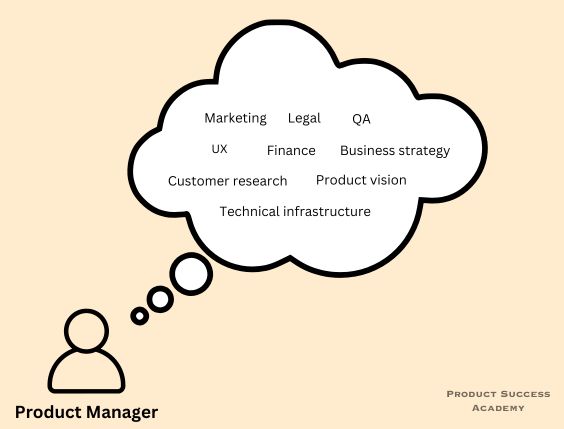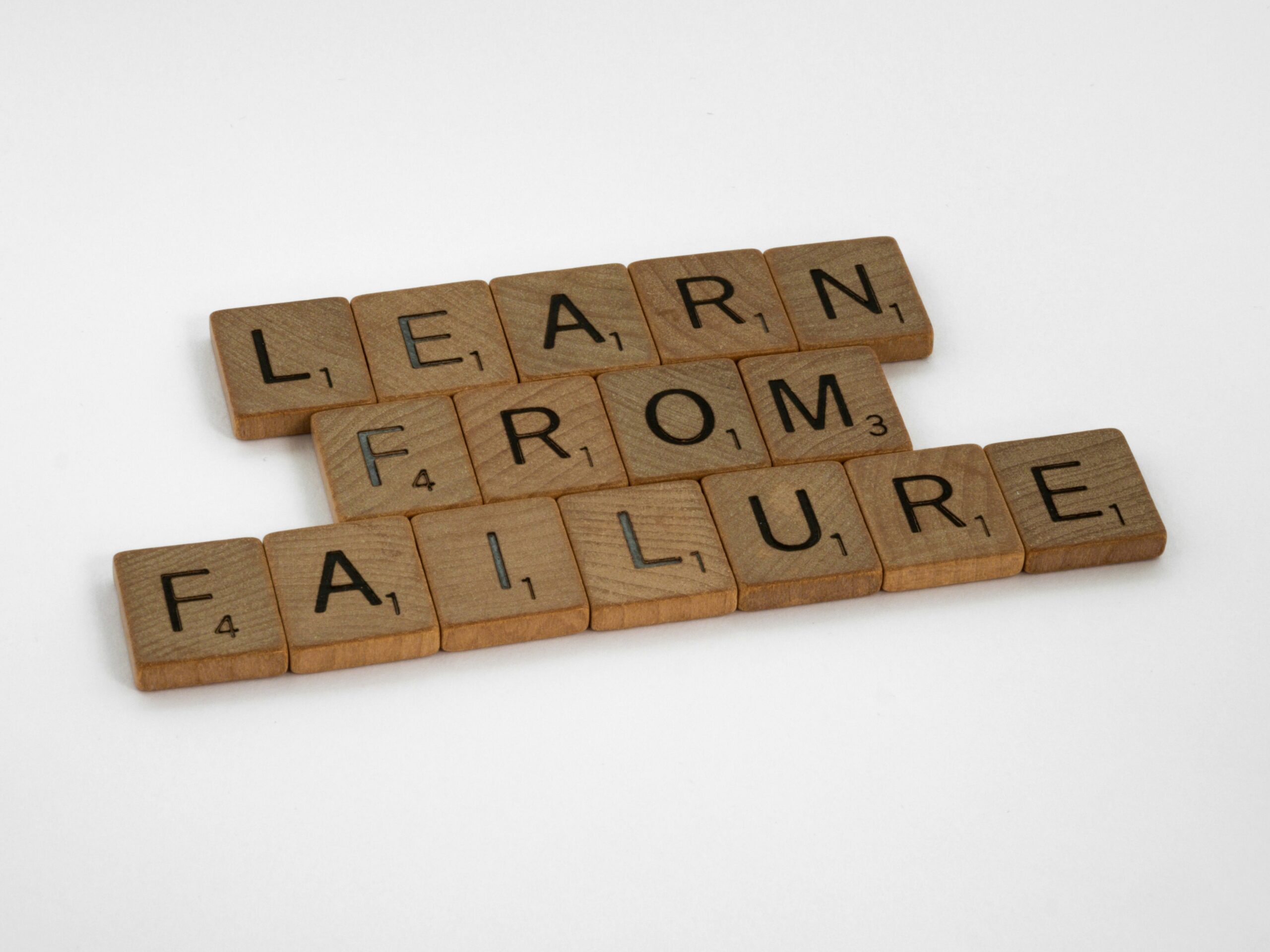40% of Product Managers claim that they experience Imposter syndrome, either frequently, or all the time. Only 8% of Product Managers have never experienced it at all.1 Given how sought after a career in Product Management is these days, those statistics are pretty shocking.
So what exactly is Imposter Syndrome and why is it such a common phenomenon amongst Product Managers? Is there anything that can be done to help them overcome it?
Imposter syndrome is the psychological experience of feeling unqualified to perform a certain role, or the belief that one does not deserve to be in their current position. Many experiencing it will put their achievements down to ‘luck’, rather than their own ability or effort, even with there being plenty of evidence of their success.
From my own personal experience, I can say that Imposter Syndrome has plagued me at various times during my career. At my first Product role, I was promoted to Head of Product at 26 years of age. This was at a time where all the other Heads of departments were in their late 30s or early 40s. While I should have seen this as an enormous vote of confidence in my abilities and potential, instead I spent most of those years feeling like I was out of my depth. I felt inadequate in relation to the title, even though there was plenty of evidence that I was making good Product decisions. My imposter syndrome stopped me from being confident in my day-to-day, and I experienced self-doubt that hindered my wellbeing at work.

So why is Imposter Syndrome so common amongst Product Managers?
1. Misunderstanding the role & unrealistic expectations
One of the reasons it’s so common within Product Management is due to widely held misunderstandings of the role itself. The number of job postings I have read which state that a Product Manager must for example, hold a Computer Science degree is a huge indicator of the fact that employers themselves do not understand the role (and no, these were not job postings for highly technical, developer-oriented products).
This misunderstanding can often extend to Product Managers themselves, who, faced with the expectation of knowing everything about everything, start to expect that from themselves. Product Managers, who are also sometimes referred to as ‘mini-CEOs’ are expected to be able to hold a deeply technical conversation with a Developer, discuss paid acquisition strategy with a Digital Marketer, be a customer advocate, while also being able to work on a business plan for a new product offering. This is the expectation, on top of being well versed with Technology, Business (which is a wide term in and of itself) and User Experience. The fact is that no one person can be an expert on all of these things, and so whenever you come up short as a Product Manager in your knowledge of a very specific domain, Imposter Syndrome is the result.

2. Lack of formal training
Another factor that adds to the feelings of inadequacy is the fact that there isn’t yet much formal training in Product Management, in the form of college degrees, professional licensing or certifications. A degree is an important form of success and knowledge validation, which reassures the holder that they are well prepared for a career in that field, however no such thing exists for Product Managers, who come from a wide variety of backgrounds.
3. The sheer responsibility of the role
Add to the above, the fact that Product Managers wield great power and often have the responsibility of deciding what gets built and what doesn’t. This puts them at a point of increasing tension, since many stakeholders within the company seek to exert their influence over the Product Manager’s decisions. This ramps up the pressure on Product Manages to make the right call, every time. However, Product Managers inhabit a world of uncertainty, often making decisions with limited information, so making the right call every time is a statistical impossibility. The weight of that responsibility, where the odds are stacked against them weighs heavy on Product Managers.
_________________________________________________________________
So how can Product Managers manage these symptoms and get their Imposter Syndrome under control?
Below are 3 practical tips for Product Managers to begin to tackle Imposter syndrome:
1. Acknowledge your state of mind, and then practice a mind-shift change
The first step to overcome any challenge is to acknowledge what you’re experiencing and to recognize that you are not alone. Once you understand that what you’re experiencing is a common phenomenon, work to shift your perspective.
There is scientific evidence suggesting that those who experience Imposter Syndrome are actually on the road to success even though their feelings suggest the exact opposite. For example, the Dunning-Kruger2 effect which was studied by Justin Kruger and David Dunning in 1999 suggests that there exists a cognitive bias in which people with limited competence in a certain domain are often the most confident. On the flip side, those who are the most skilled and knowledgeable (and therefore understand depth and complexity) tend to underestimate their skills. Experiencing doubt therefore, is a sign that you appreciate depth & complexity, rather than it being a sign of your incompetence.
This well documented cognitive bias has led many prominent business leaders to claim that Imposter Syndrome is the actual secret to their success. For example, Barbara Corcoran, the Shark Tank investor has said that “if you’re struggling with imposter syndrome, good for you. Thank the Lord in heaven that you have imposter syndrome.” Why? Because worrying that you’re a fraud ensures that “you’re going to try harder than the next guy, and it’s in the trying that you find your confidence…my success is entirely due to my insecurity.3” Others, like the Adam Grant best selling author of the book ‘Hidden Potential’ have claimed that imposter syndrome “usually means you’re facing a new challenge and you’re going to learn.4” The bottom line is that if you channel your insecurity into learning more and trying harder, it can become the key to your success rather than your downfall.
People who have Imposter syndrome also tend to possess another trait that’s important for long term success: intellectual humility. This is the ability to admit when you’re wrong about something and to then pivot and look for a better idea. People with this quality learn faster, pivot from their mistakes, are more curious and even empathize better with their colleagues – they basically possess all the hallmarks of great leaders.
2. Never stop learning
Focussing on what you don’t know, rather than on what you do know, is an underrated superpower and one that comes naturally to those experiencing Imposter Syndrome. It encourages you to continually upskill and fill the knowledge gaps that you may have. Depending on where you find yourself within your Product organization, upskilling strategically is your best chance to bat away those pesky feelings of self doubt.
Critically analyze not only the skill sets that you bring to the table but also where you could improve. You don’t need to become an expert in Data Science or develop a deep understanding of Python, however there are many courses on platforms like Udemy, Coursera etc which are tailored to Product Managers and their diverse needs. A course like Cole Mercer’s Technology for Product Managers for example could help you to develop more confidence in your technical skills, while not going so far in depth as to be irrelevant.
3. Lean on your teammates
A good leader isn’t a person who knows everything about everything. If you think that people like Elon Musk, Jeff Bezos etc know everything there is to know about running their companies, you couldn’t be more wrong. Good leaders instead, are experts at identifying the skills of others and are amazing at bringing talented people together to create something that’s more than the sum of their parts.
There isn’t a single wildly successful company or product that was built by one person, in isolation. Richard Branson famously remarked that for the longest time, even while running one of the largest companies in the world, he had not known the difference between ‘gross’ and ‘net’ profits when remarking on his inability with numbers. “There’s no shame in admitting the places where you may fall short, and engaging with people who can help”5.
The most practical thing that you can do, is to look around your team and recognize what each of them brings to the table. This way, you know who to bring into the room in different scenarios. Bring your most creative teammate to a brainstorm session where you are trying to find an innovative solution to an existing problem. Bring your most logical and analytical thinker to a meeting where you’re analyzing the usage data of a new feature. And when you have a pitch-deck to prepare, ask the clearest and most persuasive communicator on your team to review your work.
Remember that your role as a Product Manager is to drive your Product towards success by creating synergies within your team, not by working as the lone-wolf.
Conclusion:
Imposter syndrome is an unpleasant thing to experience and it is unfortunately, super common amongst Product professionals. However, by acknowledging your state of mind and slowly working to shift your mindset, by continuously seeking to learn and by leaning on your teammates, you can begin to get your symptoms under control. Remember, that nobody makes it far in their life by accident.
_________________________________________________________________
Have you experienced Imposter Syndrome before, and if so, how did you overcome it? Let me know in the comments below:
- https://www.productplan.com/state-of-product-management-report-2021/ ↩︎
- https://en.wikipedia.org/wiki/Dunning%E2%80%93Kruger_effect ↩︎
- https://www.inc.com/jessica-stillman/shark-tank-barbara-corcoran-imposter-syndrome-sign-success-science.html ↩︎
- https://www.inc.com/jessica-stillman/shark-tank-barbara-corcoran-imposter-syndrome-sign-success-science.html ↩︎
- https://www.cnbc.com/2018/10/18/richard-branson-told-this-lie-at-work-until-his-50s–heres-why.html ↩︎





Leave a Reply